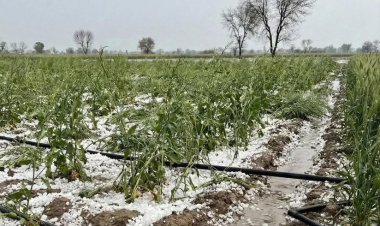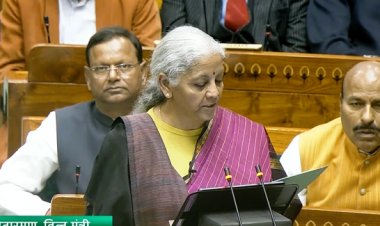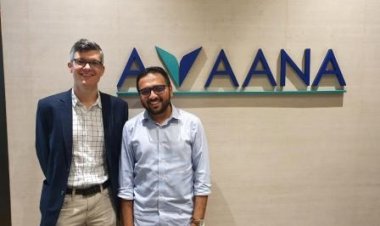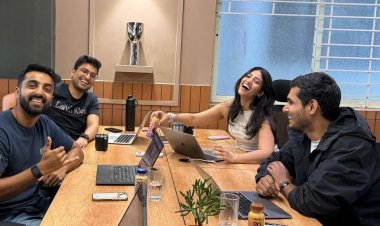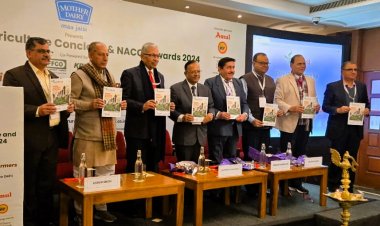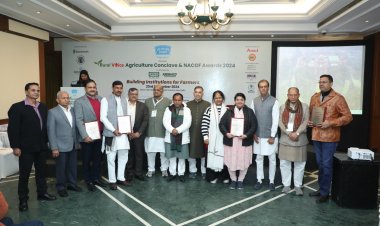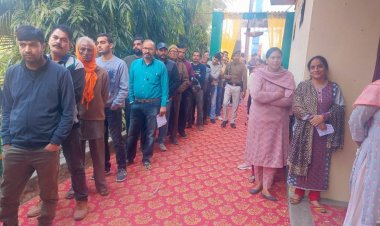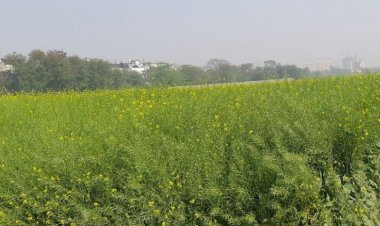World’s scientists discuss India’s efforts to achieve SDGs by 2030
A two-day National Symposium was organized on ‘Food, Nutrition, and Environmental Security: Towards Achieving SDGs’ by TAAS, a neutral think tank, in collaboration with ICAR, NAAS, ISPGR, Alliance of Bioversity International & CIAT, ICRISAT, CIMMYT and IRRI, to discuss and prioritize innovations that would transform the existing slowdown in agricultural production; to develop strategies for RA for long-term sustainability; to harness untapped opportunities by strengthening partnerships; and diversified sustainable production systems on eco-regional basis.
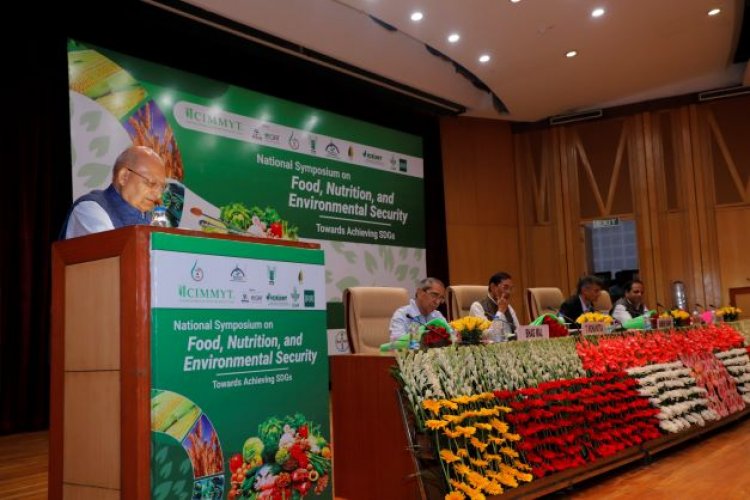
On 29 and 30 August 2022, a two-day National Symposium was organized on ‘Food, Nutrition, and Environmental Security: Towards Achieving SDGs’ by the Trust for Advancement of Agricultural Sciences (TAAS), a neutral think tank, in collaboration with the Indian Council of Agricultural Research (ICAR), the National Academy of Agricultural Sciences (NAAS), the Indian Society of Plant Genetic Resources (ISPGR), Alliance of Bioversity International & CIAT, International Crops Research Institute for the Semi-Arid Tropics (ICRISAT), International Maize and Wheat Improvement Center (CIMMYT) and International Rice Research Institute (IRRI), to discuss and prioritize innovations that would transform the existing slowdown in agricultural production; to develop strategies for regenerative agriculture (RA) for long-term sustainability; to harness untapped opportunities by strengthening partnerships; and diversified sustainable production systems on eco-regional basis.
India is committed to bringing a demand-driven and technology-led revolution to meet the challenges of rising demand for food, improved livelihood opportunities for farmers, and to attain sustainable farming for wider agricultural growth.
Around 250 delegates, including eminent scientists from all over the world, participated both offline and online and discussed threadbare the existing concerns and challenges. A few of the eminent experts who participated are Dr Raj Paroda, Chairman TAAS & Former DG ICAR; Dr Ramesh Chand, Member (Agriculture), NITI Aayog; Dr Jacqueline Hughes, DG, ICRISAT; Bram Govaerts, DG, CIMMYT; Jean Balie, DG, IRRI; Dr Himanshu Pathak, DG, ICAR; Dr T Mohapatra, President, NAAS & former DG, ICAR; Prof RB Singh, Former President, NAAS; Renu Swarup, Former Secretary DBT; Vibha Dhawan, DG, TERI.
There is a need to scale innovations in agriculture that would transform it into a vibrant and globally competitive enterprise. In doing so, both public and private sector institutions have to play an important role. Also, there is a need to develop mechanisms to monitor effectively the changes occurring towards Sustainable Development Investing (SDI) as well as Sustainable Development Goals (SDGs). The changes so anticipated shall have to be in a participatory mode. Accelerated growth in crops, horticulture, livestock, dairy, poultry and fishery sectors collectively enhance nutri-rich crop/animal/fish production, leading to better food, nutrition, health, and environmental security. It was pointed out that much effective action and strategies are required in these remaining eight years and for that NITI Aayog and ICAR should work together.
The country has made unparallel progress in agriculture in the past 70 years and is now not only self-sufficient in food but a food exporter also to a large number of countries. The question arises as to why we are not achieving outcomes when we have so much of output. We have to capture modern science and traditional agriculture to increase crop productivity and farmers’ profitability. Also, there is a need to work on food-system-based research instead of crop-system-based research. It was also expressed that there was an urgent need for strengthening and consolidating ‘thinking’ around food security, nutrition and the right to food. The Government of India should enhance adequate funding from existing 0.39 per cent to at least 1 per cent (China spends 0.62 per cent, Brazil 1.8 per cent and USA 3 per cent) for agricultural research innovation for development (ARI4D) in this cutting-age science in IPR era when Prime Minister Narendra Modi has given from the Red Fort the new slogan Jai Anusandhan.
There is a need to keep farmers at centre stage, make nutrition security a key role in the agri-food system, integrate science social responsibility (SSR) with corporate social responsibility (CSR) and adopt a food-system approach, not a food-production approach. Since we need to increase yield potential at the rate of 1.2 per cent, we need to enhance potential yield and accelerate genetic gain (SDG2) by combining empirical breeding and genetic selection, high throughput and phenotyping. Disruptive innovations need to be in place. Gene-editing technology opens new opportunities to modify new traits conditioning adaptation to biotic and abiotic stresses. Capacity building is necessarily required in these technologies.
It was also emphasized that science technology and innovation (STI) need to be kept at the core of the policy. The principle of 3Ps (policy, programme and people) need immediate attention. There is an urgent need for focusing on the right policies which provide an enabling ecosystem for innovation to thrive and scale, and the right policies can only be effective if we have in place the right set of programmes. Special training on new and disruptive technology, specialized centres of excellence (CoEs) and technology advancement centres (TACs) and required tools and platforms also need to be imparted. Further, it was pointed out to give more emphasis on water resources and soil health. In case the country doesn’t spend on soil health, human health will also be affected a great deal.
It was emphasized that agriculture must be seen as an important sector of the national economy, which has a direct role to contribute towards SDGs, promote inclusive development and the welfare of millions of smallholder farmers and accelerate the growth of the national economy. This would, however, need mobilizing resources for investment, incentives for sustainable farming practices, ease of doing business, progressive market reforms, and improved governance to balance Centre-State relations and strengthen public-private partnership. There is also an urgent need for scientific agro-eco regional planning and a balanced ‘agri-food-system-based’ multi-sectoral approach for faster agricultural growth and to contribute at least 1trn (20 per cent) of the targeted 5trn economy.
Timely implementation of the suggested reforms shall surely help achieve this goal and meet SDGs by 2030, the symposium concluded.



 Join the RuralVoice whatsapp group
Join the RuralVoice whatsapp group



















